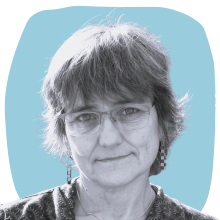
About the CLARIN Annual Conference
The CLARIN Annual Conference is the main annual event for those working on the construction and operation of CLARIN across Europe, as well as for representatives of the communities of use in the humanities and social sciences.
The CLARIN Conference 2024 will be a hybrid event. Virtual attendance is open to the wider public. The conference will take place in Barcelona, Spain. The event is organised and hosted by CLARIN ERIC, in collaboration with CLARIAH-ES.
We are pleased to welcome authors of accepted papers, members of national consortia and representatives of CLARIN centres, representatives from partner organisations, and many others who are interested in becoming part of the CLARIN community.
Registration
Calls
Call for Abstracts (closed)
- Read the call for extended abstracts.
Nominations Steven Krauwer Awards 2024 (closed)
PhD Student Session
- Read more about the PhD Student session
CLARIN Bazaar (registered participants only)
- If you would like to have a stall at the Bazaar, please sign up through the link on the Bazaar page.
Programme
Keynotes

Maite Melero leads the Machine Translation research group in the Language Technologies Unit at the Barcelona Supercomputing Center (BSC). Her primary research interests include unsupervised methods for machine translation, and the detection and mitigation of bias in translation models. She has a strong commitment to minority languages and accessibility and serves on the board of the Special Interest Group on Underresourced Languages (SIGUL), which organizes annual scientific workshops. Additionally, she is part of the Organizing Committee for the forthcoming UNESCO-sponsored conference, LT4All 2025. In 2006 she obtained a PhD in Computational Linguistics from the Universitat Pompeu Fabra, with a thesis titled "Combining Machine Learning and Rule-Based Approaches in Spanish Syntactic Generation". Before joining BSC, she held research positions at the University of Barcelona, the Institut d'Estudis Catalans, the Universitat Pompeu Fabra and Microsoft Research. In 2017 she co-authored the report "Language Equality in the Digital Age" commissioned by the European Parliament. In 2021, she coordinated a special issue on language technologies and language diversity published by Linguapax International. She frequently speaks on the impact of technology on the preservation of linguistic diversity and minority languages.

Over the past three decades, Steven Bird has been working with minoritised people groups in Africa, Melanesia, Amazonia, and Australia, and exploring how people keep their oral languages and cultures strong. He has held academic appointments at Edinburgh, UPenn, Berkeley, and Melbourne. Steven established the ACL Anthology, the Open Language Archives Community and the Natural Language Toolkit, and is past president of the Association for Computational Linguistics. Since 2017 he has been research professor at Charles Darwin University, where he collaborates with Indigenous leaders and directs the Top End Language Lab. Steven pursues other language-related projects at http://aikuma.org.
Proceedings
Presenter Guidelines
Presenters of thematic sessions, PhD-students session and Bazaar posters or demonstration are advised to take a look at the presenter guidelines, which include information about sending slides to the organisers, available equipment, and more.
Arriving in Barcelona
On this page we have provided a detailed overview of how to reach the conference venue. We advice you to consult it prior to your arrival. You can also download the instructions as a PDF file.
Code of Conduct
FAQ Hybrid Event
More information about previous CLARIN Annual Conferences
Barcelona
Spain